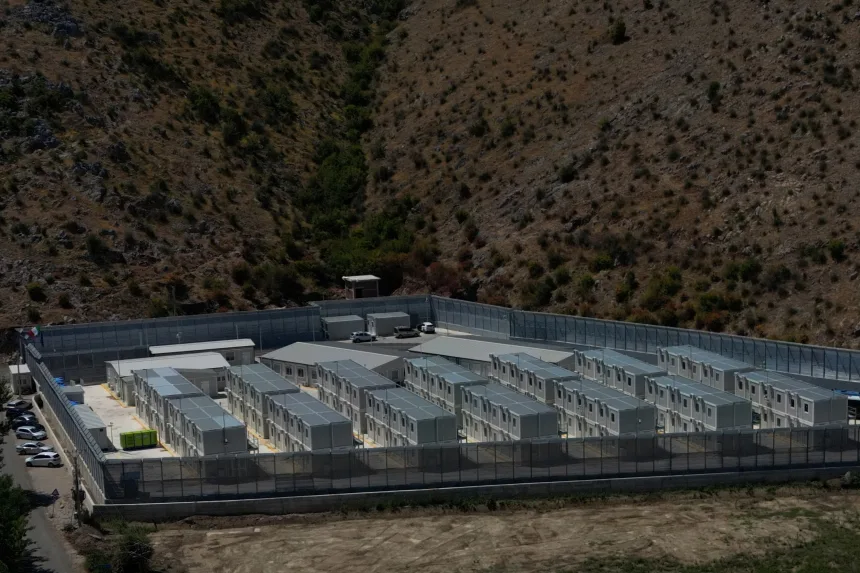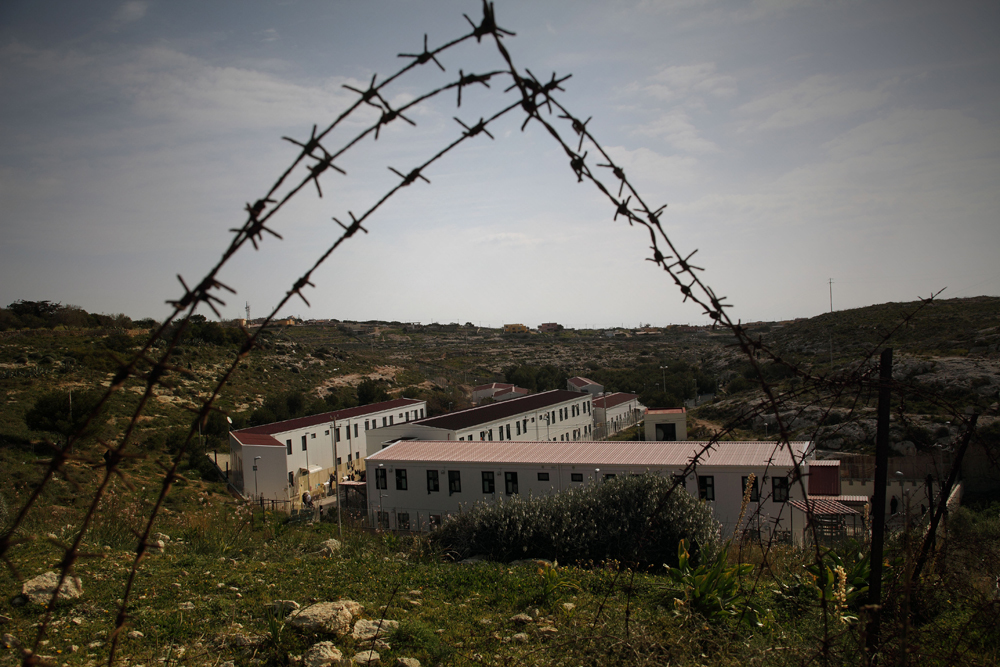Albania operates a single dedicated immigration detention facility, the Karreç Detention Centre. In a submission to the UN Committee against Torture, the GDP raised concerns regarding conditions in the facility, as well as reports of the use of ad hoc detention sites and the country’s facilitation of Italian-managed detention centres on its territory. […]
Italy
European Court Ruling Challenges Italy–Albania Detention Deal and Other Externalisation Plans
On 1 August, the European Court of Justice delivered a landmark ruling on Italy’s application of the “safe country of origin” concept, delivering a blow to the country’s offshore asylum processing scheme in Albania. Beyond Italy, the ruling has wider implications across Europe, where it is likely to impact new EU asylum regulations due to come into force in June 2026, as well as EU Member States’ efforts to externalise their own migration management schemes. […]

Deplorable Conditions in Italian Detention Centres Cast Further Doubts on Italy-Albania Migration Protocol
A recent report from the European Committee for the Prevention of Torture (CPT) reveals the deplorable conditions in Italy’s pre-removal centres. The rights body highlights both the disrespect of detainees fundamental rights, as well as abysmal detention conditions, and raises concerns regarding Italy’s detention deal with Albania. The CPT’s Report on its Visit to […]

Reports of Inhumane Conditions and Worrying Lack of Transparency at Milan’s CPR
In February, a detainee protest concerning harmful living conditions and health risks in a detention centre in Milan was met with violent repression. This latest event, one of a string of similar incidents in Italy’s network of CPRs (Centro di Permanenza per il Rimpatrio), has raised broader concerns about the disregard for human rights across […]

Europe: The Spectre of Detention Looms across the Continent as Immigration Pressures Grow
So far this year, 233,500 refugees and migrants have arrived in Europe’s Mediterranean region, compared to 159,410 during the whole of 2022. Several EU states–including the EU’s three largest economies, Germany, France, and Italy–have focused on intensifying detention measures as a tool for responding to these growing challenges, raising concerns about the region’s faltering commitment […]

ITALY: Human Rights Court Rules Against “Hotspot” Detention
In an important ruling, the European Court of Human Rights (ECtHR) has found that Italy breached Articles 3, 4, and 5 of the European Convention on Human Rights (ECHR) in its treatment of four Tunisian claimants who were detained and deported in October 2017. In October 2017, four Tunisians attempted to travel to Italy from […]

Italy and the EU “Complicit” in Crimes Against Non-Nationals in Libya
The brutal treatment of refugees and migrants in Libya has been widely condemned and reported. Intercepted by the country’s coastguard and returned to Libyan “disembarkation zones,” non-nationals are placed in immigration detention facilities where conditions are inhuman. They face indefinite detention with frequent water and food shortages; overcrowding; physical mistreatment and torture; forced labour and […]

Italy: Covid-19 and Detention
The Italian statistics bureau (Instituto Nazionale di Statistica) reported in July that the COVID-19 pandemic had led to a more than 30 percent decrease of migration entries in 2020 in comparison to the annual averages from the previous five years. On the other hand, by April 2021, Italy experienced more than 5,300 migrant and refugee […]

Immigration Detention in the European Union
This book offers a unique comparative assessment of the evolution of immigration detention systems in European Union member states since the onset of the “refugee crisis.” By applying an analytical framework premised on international human rights law in assessing domestic detention regimes, the book reveals the extent to which EU legislation has led to the adoption of laws and practices that may disregard fundamental rights and standards. […]

Places of Quarantine as Places of “Detention”
Since the onset of the COVID-19 pandemic, the GDP has received increasing numbers of reports detailing the detention of non-nationals as a quarantine measure. In Bangladesh for example, more than 300 Rohingya refugees have been confined in prison-like facilities on the remote island of Bhasan Char since April–a detention situation that has been billed by […]




